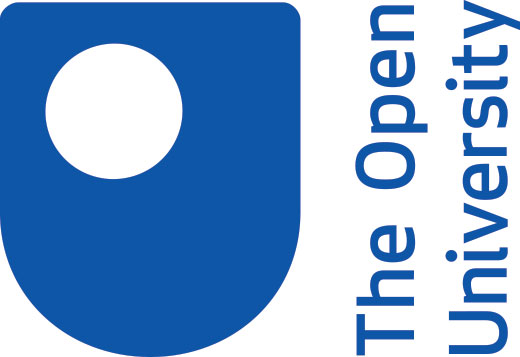Opening opportunities

John D’Arcy, National Director of The Open University (OU) in Ireland, speaks to eolas Magazine about the local landscape and how the university is meeting the needs of both employers and employees simultaneously.
Ever since its foundation in 1969, The Open University in Ireland has had a very strong presence across the island. In 1997, its headquarters were opened in Dublin and The Open University in Ireland now uniquely services students in every county, north and south.
Ask D’Arcy for three reasons why The Open University in Ireland is good for local employers, and he finds it hard to limit himself to just three. He talks about The OU’s expert knowledge and understanding of business needs, skills needs, and economic pressures, both from a local and a national perspective.
“We understand the economic landscape, the types of jobs people are doing and the types of jobs that are coming around the corner. We are really close to employers and collaborate with them to meet local employment needs, making sure that we have a skilled workforce coming through. We also do a lot of market research as a university, looking at curriculum needs and other ways we can support people and the business they work in.”

Working together with business
By pursuing a partnership approach, The Open University in Ireland is able to really home in on local needs. With over 200 associate lecturers and an office in central Dublin, D’Arcy and his team are well positioned to talk to businesses across Ireland, discussing their skills needs and operational challenges.
They work closely with important institutions such as the Institute of Directors, various chambers of commerce, and AONTAS, Ireland’s national adult learning organisation, as well as liaising with the Government. These partnerships enable the university to develop learning that targets specific local needs, creating better outcomes for employers, for students and for the economy in general.
The Open University in Ireland also works in close collaboration with its colleagues in Northern Ireland and across the rest of the UK. D’Arcy explains the over-arching challenges and needs in Ireland are very similar to those in the UK. One challenge in particular stands out as a pressing need for employers in every sector and in every location: skills shortages.
“There is a dearth of available talent, which is why upskilling programmes are very popular. We engage with businesses about what their training needs are on a day-to-day basis. With the speed of tech change, there is an understanding in most businesses that they need to continually invest in the learning that their staff do.”

The Open University in Ireland
Providing education employers need
Due to its close ties to employers and to industry, The Open University in Ireland is able to adapt its curriculum very quickly and bring new courses to market in a timely manner. The OU has always been a pioneer in the provision of short, modular courses, and this is now extending to new short courses such as its micro credentials. These accredited courses are typically 10-12 weeks long and the credits can be banked against further study. They have proved very popular with employers and employees, enabling rapid upskilling and reskilling. They can also be very easily updated to meet changing demand. “I am a big fan of these shorter courses,” says D’Arcy. “They are cost effective, fresh courses that are industry relevant. They are produced at speed, refreshed at speed, but still quality assured.”
A substantial number of employers and employees have taken advantage of these courses, particularly during the pandemic, with courses in management and leadership and digital skills proving particularly popular. Employers can use the courses to help employees move their careers in a new direction, to progress into their first management role or to plug certain skills gaps. For some of the courses, particularly those in the digital space, The OU has partnered up with industry leaders such as Cisco, Amazon Web Services, and the Agile Foundation to create courses on topics such as cyber security and machine learning.
Longer, more formal OU courses are also highly regarded, such as its MBA post graduate degree, one of only four to be triple accredited in Ireland. D’Arcy says the feedback from students on the MBA programme is very positive. Students like the flexibility of studying with The OU, while also enjoying support from a personal tutor and the ability to network with people from around the world on a daily basis.
The value of flexibility
The OU’s mission has always been to widen access to learning and make it easier for people to learn, whatever their location and whatever their circumstances, and that still stands. It pioneered remote learning back at its inception over 50 years ago and when Covid-19 struck in 2020, there was an even greater appreciation of the value of remote, online learning.
The flexible nature of OU study is a big draw in Ireland, partly because it enables employers and employees in rural areas to access learning that might otherwise be denied to them. “Ireland is still a very rural island, but we bring the best of global education to people’s fingertips,” D’Arcy states, adding: “People living in rural quarters can access high quality learning. Perhaps more than anything else, our flexibility has been our real calling card and advantage.”
Lots of students leave Ireland each year to study, with only a fraction returning. D’Arcy hopes The OU can reduce that ‘brain drain’ by enticing them to stay in Ireland and study remotely through The OU. The Open University in Ireland currently has 157,000 OpenLearn students in the Republic and a further 101,000 in Northern Ireland. D’Arcy would like to see those numbers continue to grow.
Maureen Fox, Business Relationship Manager
E: maureen.fox@open.ac.uk
W: www.open.ac.uk/republic-of-ireland






